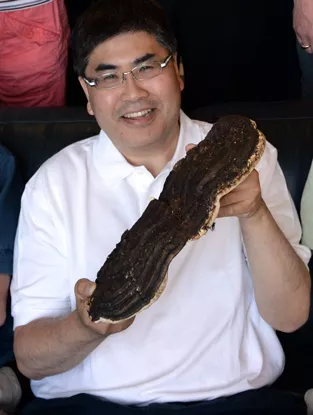
Professor, Biochemistry & Molecular Biology
Flinders University (PhD)
University of New South Wales (BSc Hons I)
Postdoctoral:
Ontario Cancer Institute
University of Wisconsin-Madison
BC Cancer Agency
Visiting Scholar/Professor:
Yale University
Hong Kong University of Science & Technology
Chemistry Program
University of Northern British Columbia
3333 University Way
Prince George, B.C.
V2N 4Z9
Office: NHSC 9-356
Phone: (250) 960 5413
Fax: (250) 960 5170
Email: chow.lee@unbc.ca
Research
My main area of research interest is cancer biology and in discovering novel anti-cancer compounds. The following briefly describes the current research projects in my lab.
- Apurinic/apyrimdinic endonuclease 1 (APE1) as a novel RNA-cleaving enzyme. APE1 is a major enzyme involved in base excision DNA repair pathway. Our lab was one of the first to demonstrate the link between APE1 and RNA metabolism. Specifically, we show that APE1 cleaves the oncogenic c-myc mRNA in vitro and regulates the mRNA level in cells. Our current research focuses on understanding the significance of the RNA-cleaving properties APE1 in cells and organisms. Such knowledge could lead to the development of novel molecular approaches for the treatment of cancer and other human diseases.
- Molecular interaction between the Coding Region Determinant-Binding Protein (CRD-BP) and its mRNA targets. CRD-BP, an onco-fetal RNA-binding protein, is over-expressed in various types of human cancers. Although the exact role of CRD-BP in tumour progression in still unclear, its ability to physically associate with target oncogenic mRNAs is an important criterion for its oncogenic function. Our lab is interested in understanding the molecular interaction between CRD-BP and its various oncogenic mRNA targets. We are also interested in finding compounds that can block such interaction. Such compound(s) have the potential to serve as a new class of anti-cancer drugs.
- Discovery of novel anti-cancer compounds from the wild mushrooms of British Columbia (BC). In collaboration with Drs. Hugues Massicotte and Keith Egger who are experts in fungi, and Drs. Kerry Reimer and Tina Bott who are organic chemists, we aim to find new compounds from BC wild mushrooms which can directly inhibit the growth of cancer cells or compounds that can stimulate our body’s immune defence mechanism to kill cancer cells.